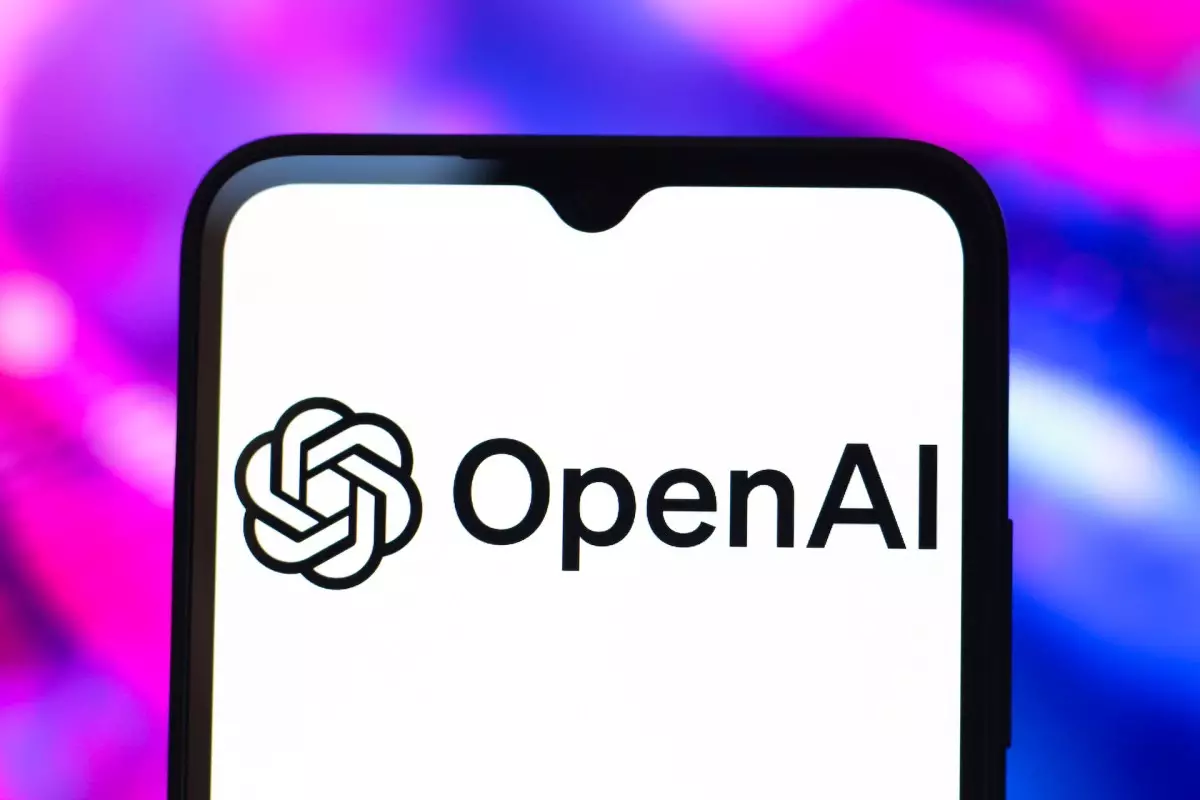The ongoing dialogue surrounding AI benchmarking has entered a contentious phase, particularly spotlighting OpenAI’s recent release of the o3 model. OpenAI’s claims about o3’s capabilities ignited anticipation within the tech community. They asserted that the model had achieved a staggering 25% success rate on the FrontierMath benchmarks—an impressive feat that eclipsed rival AI systems, which hovered at a meager 2%. However, the public’s enthusiasm was swiftly overshadowed by criticisms regarding discrepancies between OpenAI’s initial claims and independent assessments. This situation isn’t merely a misunderstanding; it raises fundamental questions about transparency and ethical obligations within the AI sector, exposing troubling tendencies among leading organizations to prioritize bold claims over factual accuracy.
The Benchmarking Battleground
In December, during the grand unveil of o3, Mark Chen, OpenAI’s chief research officer, confidently proclaimed the effectiveness of their model, insisting it far surpassed all competitors. Unfortunately for OpenAI, an analysis provided by Epoch AI, a research institute that developed the FrontierMath benchmarks, soon revealed that o3’s actual performance was significantly overstated. Epoch’s evaluations indicated that o3 only managed to achieve around 10% on the same benchmarking scale, a stark contrast to OpenAI’s earlier assertions. This revelation represents more than a mere numbers game; it highlights a broader pattern in the AI landscape where ambitious marketing strategies often lead to misleading narratives.
Interestingly, while OpenAI’s communication touted higher performance metrics, Epoch pointed out the variable nature of benchmarks. They noted that differences in testing conditions and versions could influence results. OpenAI’s internal models might have employed advanced computational resources that the public version did not, a claim echoed by ARC Prize Foundation, an organization that tested a pre-release o3. Their observations confirmed that the model they assessed was more robust than what was available for public use. Such differences are telling; they illuminate the nuanced and often obscured realities behind AI performance metrics.
Trust and Ethics in AI Development
When it comes to emerging technologies like AI, trust is a cornerstone that companies cannot afford to compromise. The AI community is still grappling with the repercussions of this crisis of confidence, especially as companies vie for prominence in an increasingly competitive market. With headlines touting milestones and breakthroughs, it’s easy for stakeholders to overlook the fine print. OpenAI’s case serves as a stark reminder that ambitious claims might mask less favorable realities, making it imperative for consumers and researchers alike to adopt a critical lens.
The notion that educational institutions and independent organizations like Epoch might have limited knowledge of an organization’s financial backing before a model’s launch further complicates this regulatory landscape. Epoch faced backlash for their delayed disclosure of OpenAI funding, emphasizing a need for a more forthright approach when it comes to collaboration and conflicting interests within AI evaluation. This lack of transparency breeds suspicion among academic contributors who have worked diligently to impartially assess these technologies.
The Future of AI and Benchmark Testing
As the AI sector expands, the ethical implications of benchmarking practices must be scrutinized. If leading companies cannot remain accountable for the claims they make, progress in AI development could stagnate, as the growing distrust may create an atmosphere resistant to innovation. Embellished claims about model capabilities are a double-edged sword. While they might generate initial interest, such tactics could entangle organizations in reputational damage that may prove insurmountable.
Moreover, the AI community should shift towards a more collaborative and transparent approach to model evaluation. Constructive peer reviews, independent assessments, and open dialogue can help bridge the gap between ambitious claims and actual performance. Transparency isn’t just a best practice; it’s an essential attribute that helps confirm accountability and veracity over time.
Lastly, with companies like Meta and xAI also facing scrutiny for their benchmarking practices, the ripple effects of this ongoing controversy could prompt industry-wide changes. Navigating the uncharted waters of AI will necessitate a commitment to rigorous ethical standards, redefining what it means to genuinely represent product capabilities. As AI technology continues to evolve, ensuring a balanced and responsible approach will ultimately safeguard the future of innovation within this captivating domain.

